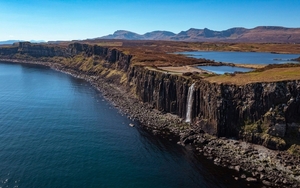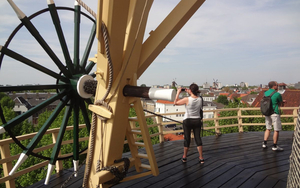IN AN age where Chinese takeaways are using drones to deliver fried rice, Google is providing internet to some of the world’s most rural communities via helium balloons and nanosensors smaller than a grain of sand are being primed to warn smartphone users of the early signs of heart disease, it’s safe to say technological advances are permeating society like never before.
For younger generations it’s hard to imagine a time before computers, yet Alan Turing’s questions about our relationship with them remain ever relevant. Over 60 years since the mathematician asked ‘can machines think?’ during his tenure at The University of Manchester - where he developed the world’s first stored-program computer - The Imitation Game sees eight international contemporary artists explore the answers and the implications at Manchester Art Gallery (13 Feb - 5 Jun).
The Imitation Game will form a major contribution to Manchester's role as European City of Science 2016
Lynn Hershman Leeson has commented on the relationship between people and technology for over three decades. The American artist and filmmaker will show Agent Ruby (1998-2002), an artificially intelligent web agent whose conversational abilities have become increasingly sophisticated; allowing ‘her’ to experience emotion, recognise voices and chat with users. French programmer Paul Granjon’s Am I Robot will also feature a robotic presence roaming the gallery and interacting with visitors: its social skills may surprise you.
James Capper’s TELESTEP’s prototype walking sculpture, meanwhile - inspired by the aesthetics of earth moving equipment and industrial machinery - will be less talkative but highly active nonetheless. Additionally to exhibiting his existing work TREAD TOE outside the gallery building, Capper will operate TELESTEP live on advertised dates during the exhibition.
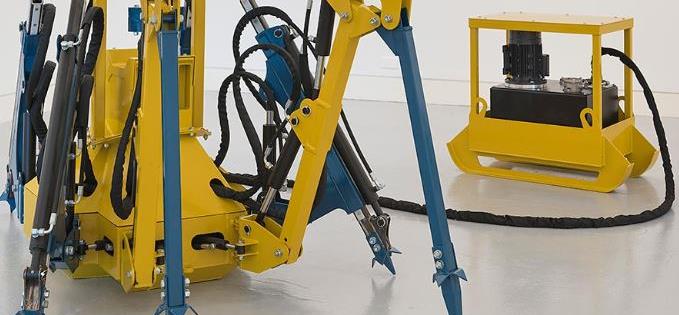 TELESTEP
TELESTEPTove Kjellmark’s pioneering artwork, in collaboration with Manchester’s School of Computer Science and Stockholm’s KTH, involves cyborgs of a more philosophical bent. With behaviour determined by locally-developed SpiNNaker brain-simulation technology, they will discuss the nature of human consciousness (yes, really). Swedish-born Kjellmark navigates the narrowing boundaries between mechanics and organics, which she argues are less distinct than we think.
Yu-Chen Wang, MSIM’s artist-in-residence, also explores human qualities in machines. Inspired by her research on the museum’s collection, Wang ponders what exhibition apparatus would say to one another once visitors have left in her ambitious multimedia work Heart to Heart. What personalities might they adopt? Speaking of which, Mari Velonaki’s installation Fish-Bird witnesses the interaction between two characters (robotic wheelchairs), who have fallen in love but can’t successfully be together. Communicating through movement and text, Fish and Bird are responsive to the presence of gallery visitors, as well as their own relationship and ‘emotional states’, resulting in incredibly complex and unpredictable behaviour.
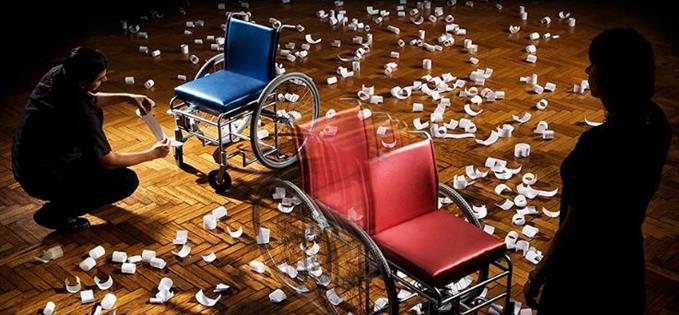 Fish-Bird
Fish-BirdLove is also in the air for David Link’s artwork LoveLetters 1.0, whose computer protagonist exclaims to its ‘darling sweetheart’ that its ‘craving fervour longs for your devoted enthusiasm’. Clearly a (dubiously) poetic machine too, the man behind these mischievous platitudes, which appeared to great surprise on the computing department notice boards of Manchester University in the early 1950s, was early software developer Chris Strachey. In a meticulous restoration project, German theorist Link has written a contemporary version of the program to run on a replica computer, giving this robot Romeo a new lease of life.
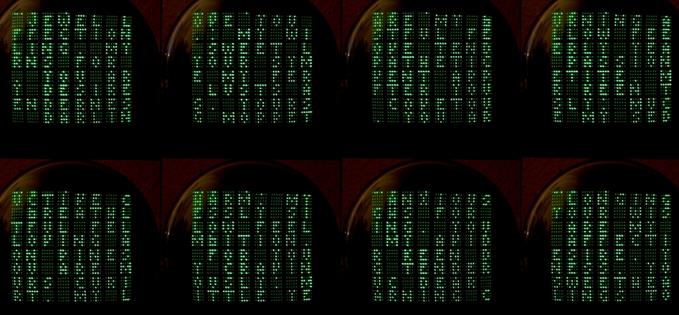 LoveLetters 1.0
LoveLetters 1.0Last but not certainly not least, Ed Atkins - whose virtual alter ego is a defaced drunkard called Dave - returns to Manchester Art Gallery, after presenting Performance Capture as part of Manchester International Festival last year. This saw MIF artists digitally captured, modelled, cut and soundtracked, before being screened as a single computer-generated figure. For The Imitation Game, Atkins screens his final video work from the Performance Capture process.
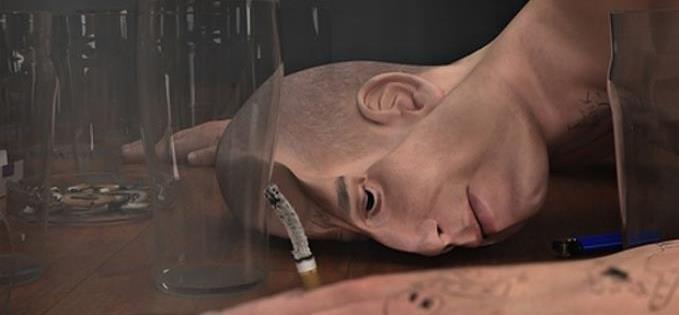 Atkins' avatar, Dave
Atkins' avatar, DaveWith three new commissions and UK premieres - plus a public programme of talks, performances and workshops - The Imitation Game will celebrate Manchester’s rich industrial history and form a major contribution to the city’s role as European City of Science 2016.
The exhibition runs 13 February - 6 June at Manchester Art Gallery - visit manchesterartgallery.org for more information












